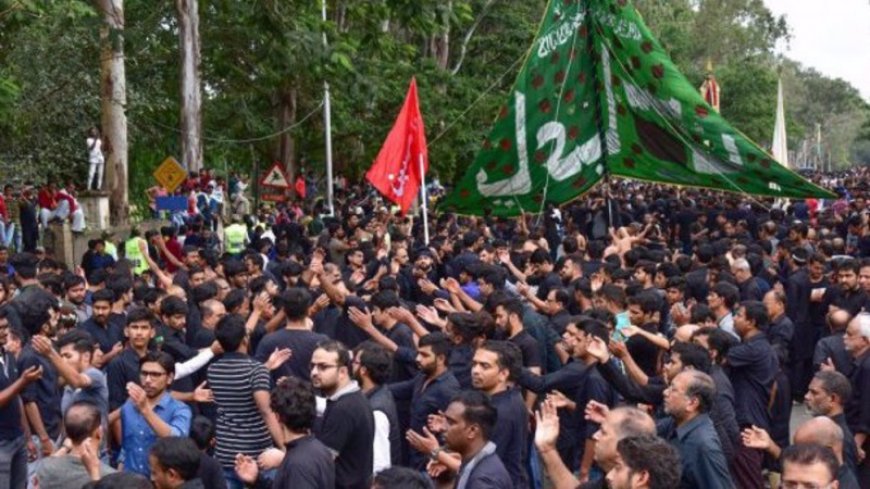The Indian government lifts a 34-year ban on a Muharram parade in Srinagar.
The Indian government lifts a 34-year ban on a Muharram parade in Srinagar.

Authorities in Indian-controlled Kashmir have supposedly lifted a ban on a traditional Shia parade to mark the month of mourning of Muharram in the city, Srinagar. After several talks with Shia officials in the Kashmir Valley, the government lifted its 34-year ban on a Muharram 8 parade on Wednesday. This was reported by the Kashmir Observer, an online newspaper. "Because the Shia brothers are religious, the government has decided to let the procession happen tomorrow," said an official with the Indian Administration Service, Vijay Kumar Bidhuri. "I'm happy for the Shia brothers and the people of Kashmir, who are known for being kind," he said.
"They helped make the world a peaceful place, which made it easier for the government to make this historic decision," Bidhuri said. In 1989, the governor of Indian-controlled Kashmir, also called Jammu and Kashmir, banned the parade as part of a larger plan to deal with political turmoil at the time. People in Kashmir want the ban to be lifted because they see it as a clear attack on religious freedom and an abuse of basic human rights. On the 8th and 10th of Muharram every year, the police put a curfew in place in Lal Chowk and other parts of Srinagar city. Millions of Shia Muslims from all over the world hold funerals for Imam Hussain (AS) during the first ten days of Muharram.
The third Shia Imam, who was the grandson of the Prophet Mohammad (peace be upon him), and his 72 friends all died as heroes when they were killed in the Iraqi desert of Karbala in the year 680 by thousands of soldiers of Caliph Yazid I, who was a tyrant at the time. During the ceremonies, eulogists talk about what happened at the Battle of Karbala, and Islamic experts talk about what Imam Hussain's stand against injustice really means.













































